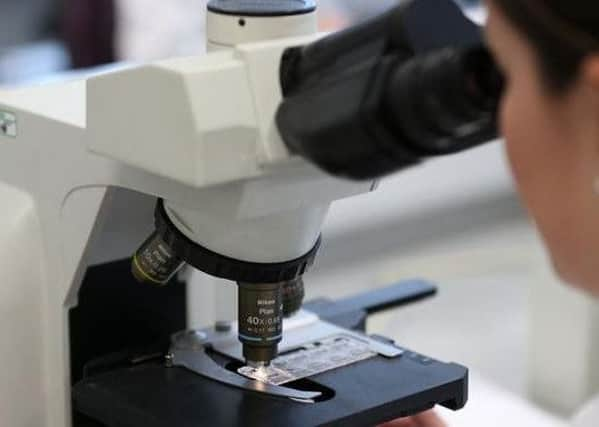Targeting stem cells early could be key to bowel cancer prevention


New research indicates stem cells - believed to play a key role in the development of cancer - could be sensitive to existing cancer drugs but only if they are treated very early on.
Researcher Michael Hodder from the Cancer Research UK Beatson Institute in Glasgow studied the role of stem cells in the guts of mice that had been bred to mimic a human hereditary condition called familial adenomatous polyposis (FAP).
Advertisement
Hide AdAdvertisement
Hide AdPeople with the condition carry a fault in a gene called adenomatous polyposis coli (APC) and have a greater than 95% chance of developing bowel cancer.
Scientists found that an existing cancer treatment called Cisplatin could prevent cancer in the mice if used at a very early stage.
They found that pre-cancerous stem cells were more sensitive to Cisplatin than normal stem cells in the gut of the mice.
Mr Hodder said: “For people with FAP who inherit an extremely high risk of bowel cancer, there is a clear benefit to being able to prevent tumours.
“This research is in mice, not in humans, but it does present the possibility that targeting stem cells could be a route to preventing tumours in people with a very high risk of bowel cancer.
“Cisplatin is a powerful cancer drug that can cause serious side-effects, so we will need to discover whether it can work on pre-cancerous stem cells at very low doses, or whether we can find other drugs that have the same effect but with fewer side-effects.”
The findings will be presented at the NCRI Cancer Conference in Glasgow today (Tuesday).
